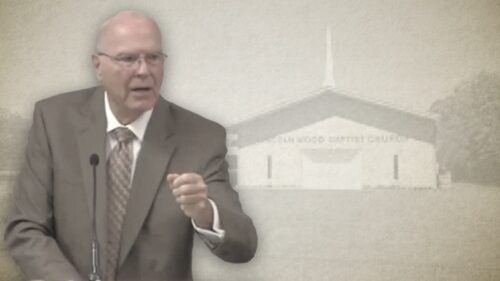-
32 Bible Doctrine – The Doctrine Of Duty Faith
I would like to welcome you back to another study in Bible Doctrine. In our previous study, I laid out for you the covenantal framework for 18th century Hyper-Calvinism. There is a covenant of works God made with Adam on behalf of the human race, requiring perfect obedience to the law inscribed upon the heart; and there is a covenant of redemption, otherwise known as the covenant of grace, God made with Himself on behalf of the elect. The conditions of this covenant are the electing love of the Father, the redeeming grace of the Son and the sanctifying power of the Holy Spirit. I pointed out that this framework was not only a refinement of the covenantal scheme of 17th century Hyper-Calvinism, but also…
-
1 The Doctrines Of Grace Not Dangerous
By the true Christian, all that savours of God must be highly esteemed; but by him, who has only the "form of godliness, while denying the power thereof,” such a religion, as can be taken up and laid down at pleasure, is the only religion either sought after or admired: therefore, the religion of grace being that which forbids "the wise man to glory in his wisdom, or the mighty man to glory in his might, or the rich man to glory in his riches," Jer. 60:24, must be hated by all who are so wise, as to think God the Father's love depends upon their choice; so mighty as to believe God the Son's salvation is made sure by their strength; and so rich,…
-
The Doctrine Of Duty Faith
FOR A COMPLETE ORDER OF WORSHIP, INCLUDING BIBLE READING, HYMNS AND SERMON...
-
31 Bible Doctrine – The Emergence Of 18th Century Hyper-Calvinism
I would like to welcome you back to another study in Bible Doctrine. Having looked at the emergence of 17th century Hyper-Calvinism, I now turn to that of the 18th century. By way of review, we left off in the previous study with the emergence of 17th century Hyper-Calvinism, culminating in the doctrinal statements of the 1646, the 1658 and the 1689 confessions of faith. These documents set forth a threefold covenantal framework—a covenant of redemption, drawn up by the TriUne Jehovah from eternity, which is relegated to the backdrop of history; a covenant of works, made by God with Adam before he sinned, requiring of him perfect obedience to the law inscribed upon his heart; and a covenant of grace, made by God with…
-
The Emergence Of 18th Century Hyper-Calvinism
FOR A COMPLETE ORDER OF WORSHIP, INCLUDING BIBLE READING, HYMNS AND SERMON...
-
30 Bible Doctrine – The Emergence Of 17th Century Hyper-Calvinism
I would like to welcome you back to another study in Bible Doctrine. In our previous study, I pointed out the broadest definition for Hyper-Calvinism is any teaching which goes beyond that of Calvin himself. It is in that sense I am using the label as we consider the emergence of Hyper-Calvinism during the 17th century. I believe there are two branches of Hyper-Calvinism, one which came about during the 17th century, beginning with the publication of John Calvin’s Institutes in the year 1536 and culminating with the 1689 Baptist confession; the other came about during the 18th century, beginning with two sermons preached by Benjamin Keach in the year 1692 and culminating in the year 1770 with John Gill’s Body of Divinity. In addition…







